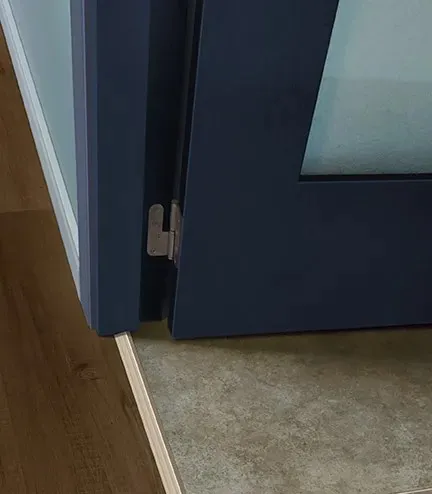-
Online products available in the U.S. market
- Registration / Log in
Online products available in the U.S. market

Choosing between vinyl and floating floors depends on use, budget, and style. This guide explores their main differences, advantages, and installation tips to help you achieve durable and stylish surfaces for any space.

Floors have become a true design device. They not only serve a functional purpose but also define the aesthetics and the feeling of inhabiting a space. In the Argentine (and Latin American) market, the two most popular options are vinyl floors and floating (laminate) floors.
Vinyl floors: made from layers of PVC or SPC (Stone Plastic Composite), they stand out for their water resistance, durability, and the versatility of designs that replicate wood, concrete, or stone. They are increasingly chosen for urban apartments, commercial spaces, and modern offices.
Floating (laminate) floors: composed of HDF (High Density Fiberboard) boards with a melamine or decorative surface layer, they offer visual warmth and a strong cost-benefit ratio. They are commonly used in family homes, bedrooms, and living rooms.
Vinyl SPC: composed of a blend of limestone powder and plastic polymers pressed into rigid layers. The result is a 100% waterproof floor with excellent dimensional stability and a hyper-realistic finish. Installed using a click system, it simplifies construction and eliminates the need for adhesives.
Vinyl LVT (Luxury Vinyl Tile): features flexible PVC layers with high-resolution printing. It stands out for its visual fidelity in textures and colors. It can be installed with a click system or glued down, depending on the model.
Floating HDF floors: made from high-density fiberboard panels. The surface includes a decorative layer that replicates wood or solid colors, protected by a transparent overlay. These floors offer good wear resistance but require more care against moisture than vinyl options.
Feature | Vinyl Floors (SPC / LVT) | Floating Floors (HDF) |
|---|---|---|
Water resistance | 100% waterproof, suitable for bathrooms and kitchens | Sensitive to water, may swell |
Durability | High, suitable for heavy traffic | Medium-high, less ideal for commercial spaces |
Aesthetics | Realistic wood, stone, or concrete looks | Classic wooden tones and textures |
Installation | Quick click system, no adhesives | Click system, requires level subfloor |
Maintenance | Easy, cleaned with damp cloth | Requires specific cleaners, moisture-sensitive |
Cost | Variable: LVT affordable, SPC premium | Generally more budget-friendly |
At Atrim Global, you’ll find the most comprehensive catalog of floor finishing profiles and skirting boards:
Transition profiles for floating, carpet, vinyl, LVT, and SPC floors.
Installation accessories such as adhesives and clips.
👉 Visit https://www.atrimglobal.com/en-us and download the technical sheets to integrate ATRIM products into your next project.

Want to receive more information?
Subscribe to our newsletter.
Log in
Registration
Registration successful
You will soon receive a confirmation email to verify your account and you will be able to log in.
Recover password
You have registered successfully
Check your inbox to confirm your account
Verification
Your email has been confirmed correctly, you can now access the technical information associated with our products.
On the other hand, our technical team will review your professional profile in order to evaluate the possibility of accessing our private area.
If you enable access to the private area, you will receive a notification email.
Download
You will be able to start the download once the mandatory fields are completed
ATRIM - NIVELATOP Calculator
Self-leveling kit consisting of wedges (reusable), clips and clamps for placing ceramic and porcelain tiles.
1 Porcelain or ceramic thickness
2 Clip Selection
Depending on the thickness of the selected coating/ceramic or porcelain tile, the Self-Leveling Clips available are the following:
Leveling clip Translucent 1/16 (100-unit packs)
Leveling clip Yellow 3/32 (100-unit packs)
Leveling clip Red 1/8 (100-unit packs)
Important: For rectified porcelain tiles, a minimum joint space of 1.5 mm must be left between coverings. For other types of plates, it is recommended to consult the manufacturer since the space may vary depending on their technical specifications and surface conditions.:
3 Area to cover
4 Ceramic dimensions
Recommended Self-Leveling Kit:
Total clips needed:
496
Total wedges needed:
248
Leveling Wedges achieve exact leveling between coatings. They are reusable and offered in a single size.
Wedges(100-unit packs) Violet
The same wedge is used for all the clips.
Leveling clamp:
Speeds up the placement of coatings.
Metal Plier (1 unit pack) Violet 4 23/32' x 9 29/64'
Elige un nombre para la lista
Step 1 of 3 Step 2 of 3 Paso 3 de 3
